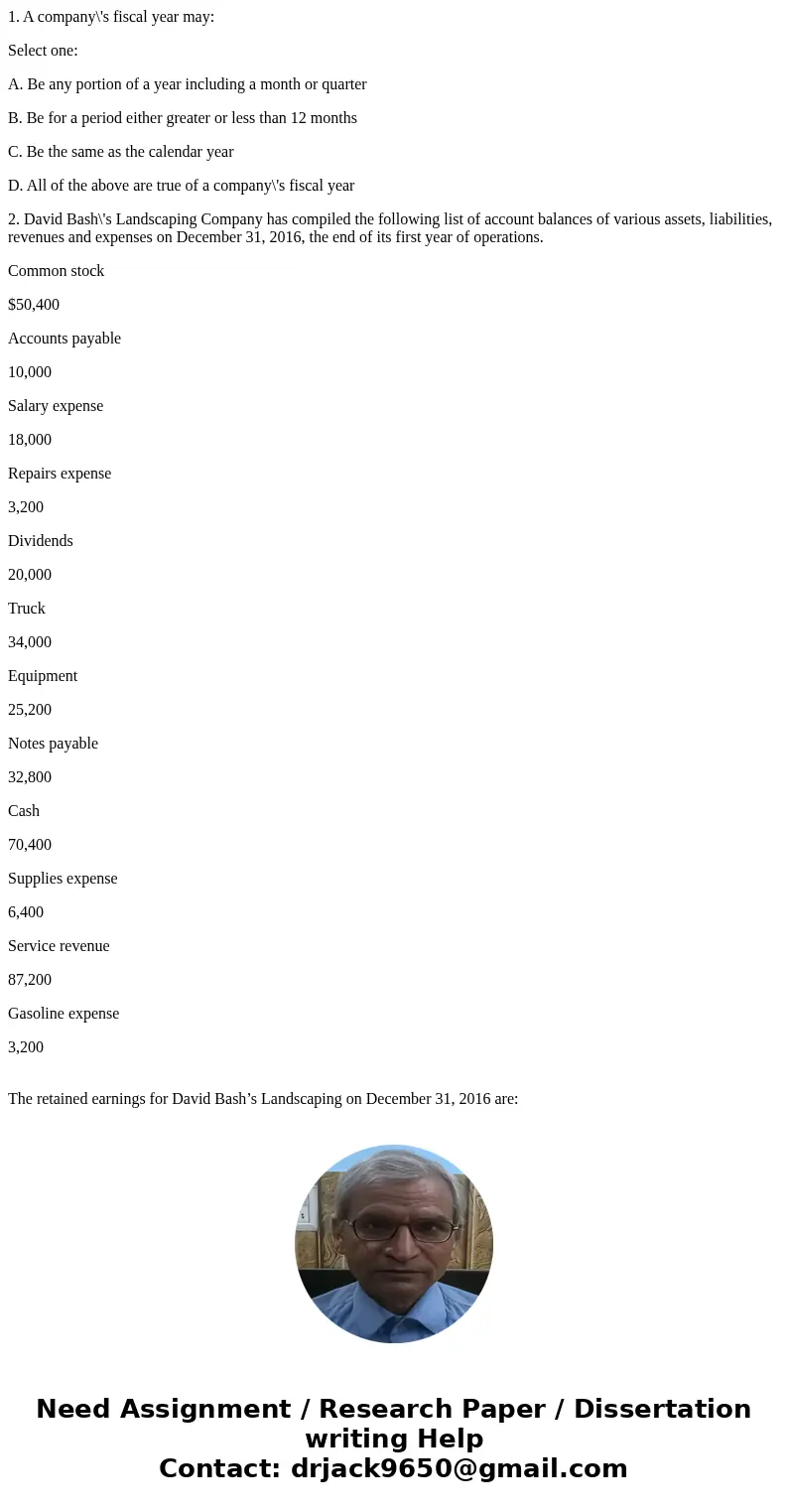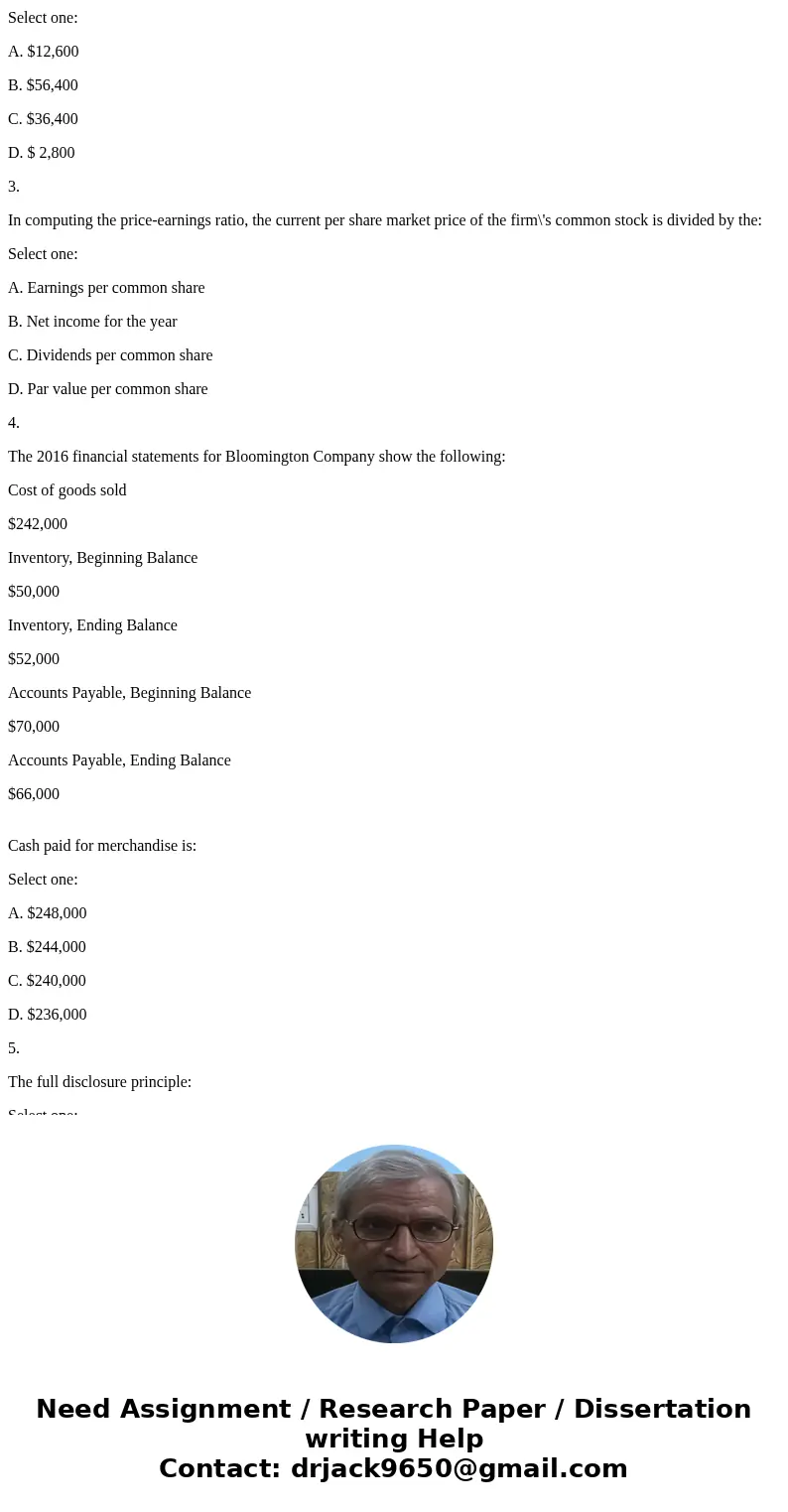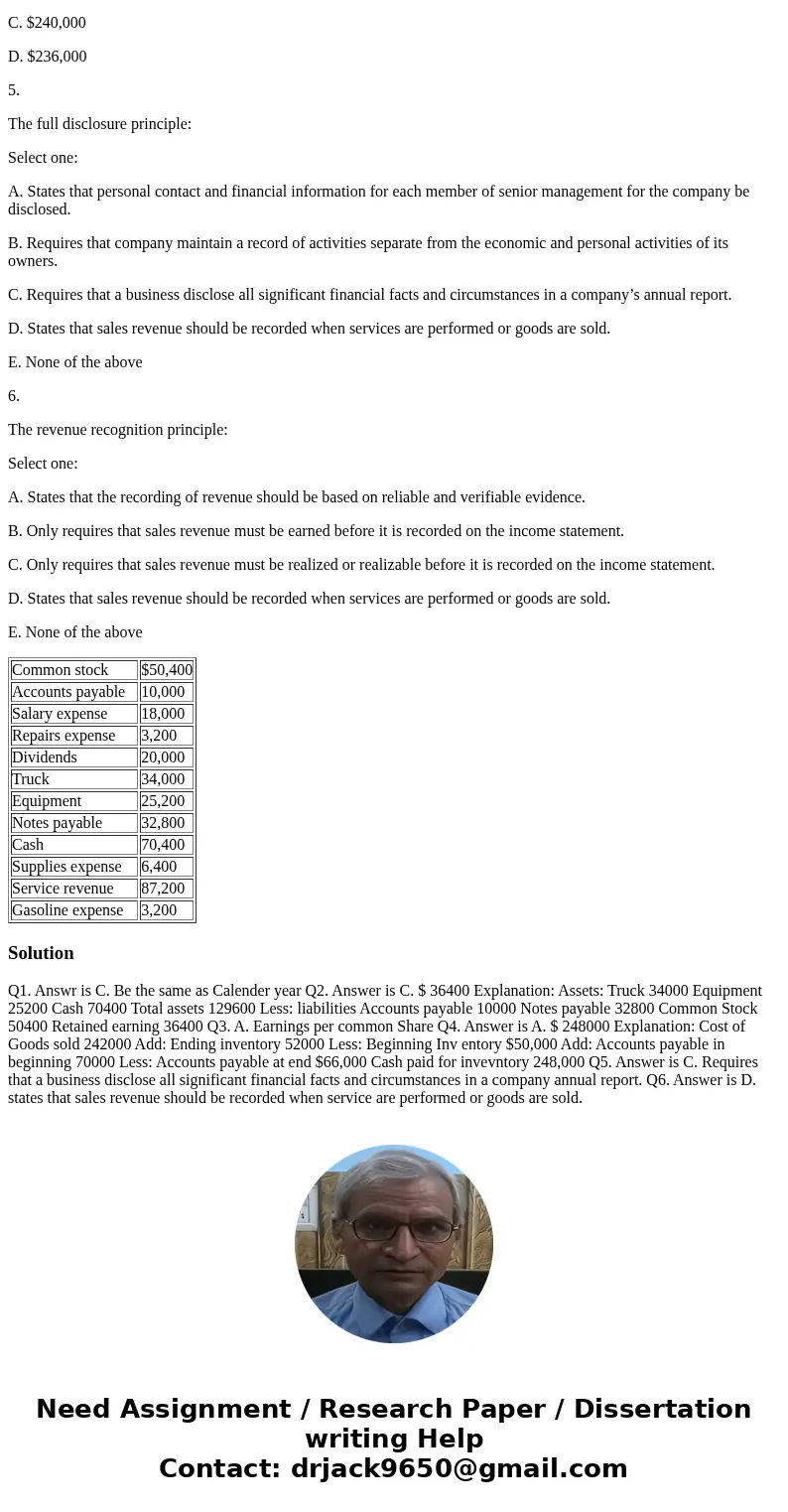1 A companys fiscal year may Select one A Be any portion of
1. A company\'s fiscal year may:
Select one:
A. Be any portion of a year including a month or quarter
B. Be for a period either greater or less than 12 months
C. Be the same as the calendar year
D. All of the above are true of a company\'s fiscal year
2. David Bash\'s Landscaping Company has compiled the following list of account balances of various assets, liabilities, revenues and expenses on December 31, 2016, the end of its first year of operations.
Common stock
$50,400
Accounts payable
10,000
Salary expense
18,000
Repairs expense
3,200
Dividends
20,000
Truck
34,000
Equipment
25,200
Notes payable
32,800
Cash
70,400
Supplies expense
6,400
Service revenue
87,200
Gasoline expense
3,200
The retained earnings for David Bash’s Landscaping on December 31, 2016 are:
Select one:
A. $12,600
B. $56,400
C. $36,400
D. $ 2,800
3.
In computing the price-earnings ratio, the current per share market price of the firm\'s common stock is divided by the:
Select one:
A. Earnings per common share
B. Net income for the year
C. Dividends per common share
D. Par value per common share
4.
The 2016 financial statements for Bloomington Company show the following:
Cost of goods sold
$242,000
Inventory, Beginning Balance
$50,000
Inventory, Ending Balance
$52,000
Accounts Payable, Beginning Balance
$70,000
Accounts Payable, Ending Balance
$66,000
Cash paid for merchandise is:
Select one:
A. $248,000
B. $244,000
C. $240,000
D. $236,000
5.
The full disclosure principle:
Select one:
A. States that personal contact and financial information for each member of senior management for the company be disclosed.
B. Requires that company maintain a record of activities separate from the economic and personal activities of its owners.
C. Requires that a business disclose all significant financial facts and circumstances in a company’s annual report.
D. States that sales revenue should be recorded when services are performed or goods are sold.
E. None of the above
6.
The revenue recognition principle:
Select one:
A. States that the recording of revenue should be based on reliable and verifiable evidence.
B. Only requires that sales revenue must be earned before it is recorded on the income statement.
C. Only requires that sales revenue must be realized or realizable before it is recorded on the income statement.
D. States that sales revenue should be recorded when services are performed or goods are sold.
E. None of the above
| Common stock | $50,400 |
| Accounts payable | 10,000 |
| Salary expense | 18,000 |
| Repairs expense | 3,200 |
| Dividends | 20,000 |
| Truck | 34,000 |
| Equipment | 25,200 |
| Notes payable | 32,800 |
| Cash | 70,400 |
| Supplies expense | 6,400 |
| Service revenue | 87,200 |
| Gasoline expense | 3,200 |
Solution
Q1. Answr is C. Be the same as Calender year Q2. Answer is C. $ 36400 Explanation: Assets: Truck 34000 Equipment 25200 Cash 70400 Total assets 129600 Less: liabilities Accounts payable 10000 Notes payable 32800 Common Stock 50400 Retained earning 36400 Q3. A. Earnings per common Share Q4. Answer is A. $ 248000 Explanation: Cost of Goods sold 242000 Add: Ending inventory 52000 Less: Beginning Inv entory $50,000 Add: Accounts payable in beginning 70000 Less: Accounts payable at end $66,000 Cash paid for invevntory 248,000 Q5. Answer is C. Requires that a business disclose all significant financial facts and circumstances in a company annual report. Q6. Answer is D. states that sales revenue should be recorded when service are performed or goods are sold.


 Homework Sourse
Homework Sourse